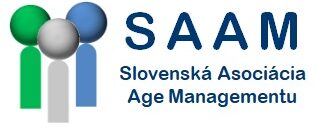Professor Juhani Ilmarinen started his research career in the Department of Physiology, Finnish Institute of Occupational Health (FIOH), then in the Institut fur Arbeitsphysiologie, University of Dortmund, Germany and defended his Ph.D. in health and sports sciences (work physiology) in the University of Cologne. After returning to Finland, he focused his work on the theme of Ageing and Work. His multidisciplinary team created the Work Ability concept and a method called the Work Ability Index (WAI) for ageing workers, that was implemented in 26 countries. He also publicates (more than 500 publications and 8 books), e.g. handbook on age management called Towards a Longer Life.
Whom is the age management dedicated to? What type of companies?
Age management is a new competence for manager and supervisors in all companies and work organizations, where the demographic change is influencing. As well in private and public sector organizations are forced to adjust their functions for all generations. The most urgent need of age management is in companies where heavy physical and/or mental load is present.
Does it exist international organization that connects regional age management organizations?
So far as I am informed there is no permanent international organisation operating in age management aiming to connect regional actions and experiences of age management. However, some EU-Project organisations, like the BestAgers Lighthouses for Baltic See Region, aimed to create a network between countries and organisations in age management.
How does the EU encourage companies which implemented age management?
In 1990s and begin of 2000 the EU-Institute for Work and Living Conditions in Dublin carried out surveys and analysis about age management in 27 Member States. They provides a website, where the best practices of age management by sector and country are available. Almost 200 best examples, about 10-15 per country, intended to motivate other companies to learn and implement the best practices of age management. How well this data base is known, remains unclear. The more active way of EU is to provide financial support for sectorial or regional projects. One example is the ongoing Social Dialogue Committee Post project on demographic change focusing on “ Managing demographic challenges and finding sustainable solutions by the social partners in postal sector”. Another one is an WorkAge – Program financed by EU and conducted by the Nottingham Trent University in UK.
What does the employer find out from Work Ability Index? Are the anonymous screenings done to recognize a need of age management implementation in company?
Work ability Index (WAI) is a validated tool for work organizations to evaluate the need for work ability promotion and the risks of work disability. Very often a decreased WAI ( moderate or poor ) will be found among 45+ work populations: about 30 % are in the level of moderate and about 10 % have a poor WAI. If no promoting activities will be carried out, a high probability of early exit from working life will follow. Because the most important single factor explaining the critical level of WAI is the quality and behavior of the managers and supervisors, their age management skills and competences play an essential role for WAI promotion.
For the companies the WAi indicates the need for preventive measures f.ex. by age group and job, initiate actions needed, and will evaluate the effects of the work ability promotion. WAI is valuable tool for occupational health services and for workplace health promotion.
What effect does the age management have on quality of lifes of the seniors, who were an active part of age management concept during their employment years?
WAI has a long term effects from worklife up to 3rd age life quality. Our 28-year follow up studies indicated, that the level of WAI before retirement predicted the independence in daily living in ages 73-86 years in Finland. From those having an excellent and good WAI during working life, about 60-70 % had an independent living without limitations in later life. From those with moderate/poor WAI before retirement, only 30-40 % were able to operate outside home, like shopping ,travelling enjoying from hobbies. Therefore, the investments on WAI during the working life is important.
Uverejnené so súhlasom Aptet n.o.

